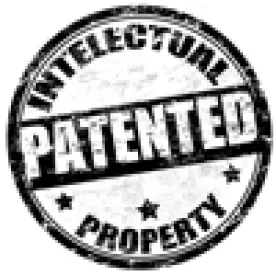A recent order from the District of Massachusetts sheds light on how the Supreme Court’s June 2016 decision in Halo Electronics v. Pulse Electronics is being interpreted by the district courts. The Memorandum and Order by Chief Judge Patti B. Saris denied a request for enhanced damages by plaintiff, Trustees of Boston University (“BU”).
BU moved for enhanced damages after a jury found that defendants Everlight Electronics Co., Ltd. (“Everlight”), Epistar Corporation (“Epistar”), and Lite-On Inc. (“Lite-On”) infringed U.S. Patent No. 5,686,738 (the “’738 patent”), titled “Highly Insulating Monocrystalline Gallium Nitride This Films.” The jury also found that Epistar induced both Everlight and Lite-On’s infringement, and that both Epistar’s and Everlight’s infringement was willful.
 The November 2015 jury verdict was rendered after the jury was instructed that “[t]o prove willfulness, Boston University must persuade you by clear and convincing evidence . . . that the defendant actually knew, or it was so obvious that the defendant should have known, that its actions constituted an unjustifiably high likelihood of infringement of a valid patent,” based on the subjective willfulness prong of In re Seagate Tech., LLC, 497 F.3d 1360, 1371 (Fed. Cir. 2007) (en banc). After the Supreme Court rejected the Seagate test in Halo, BU asked the Court to order enhanced damages based on the jury’s finding of willfulness.
The November 2015 jury verdict was rendered after the jury was instructed that “[t]o prove willfulness, Boston University must persuade you by clear and convincing evidence . . . that the defendant actually knew, or it was so obvious that the defendant should have known, that its actions constituted an unjustifiably high likelihood of infringement of a valid patent,” based on the subjective willfulness prong of In re Seagate Tech., LLC, 497 F.3d 1360, 1371 (Fed. Cir. 2007) (en banc). After the Supreme Court rejected the Seagate test in Halo, BU asked the Court to order enhanced damages based on the jury’s finding of willfulness.
In requesting enhanced damages, BU emphasized in its motion that the jury, in applying the Seagate test, found by clear and convincing evidence that Epistar and Everlight willfully infringed. In support of its motion, BU argued that Epistar and Everlight attempted to conceal their infringement, failed to take any remedial action, and engaged in abusive discovery practices. Defendants countered by arguing that BU could not show that any of their defenses were objectively unreasonable.
In denying BU’s motion for enhanced damages, Judge Saris emphasized that “the touchstone for awarding enhanced damages after Halo is egregiousness.” With that foundation, Judge Saris determined that BU did not prove by a preponderance of the evidence that the defendants engaged in the type of egregious conduct necessary for an award of enhanced damages.
Highlighting the potential increased importance of non-infringement opinions post-Halo, Judge Saris noted that after being accused of infringement, Epistar hired two law firms to provide infringement opinions and obtained third-party testing of its accused products after which it determined it did not infringe. In the end, despite the jury finding of willfulness, the Court determined in its discretion that Defendants’ conduct was not egregious to an extent that would merit enhanced damages.
The cases are Trustees of Boston University v. Everlight Electronics Co., Ltd., et al., 12-cv-11935; Trustees of Boston University v. Epistar Corporation, et al., 12-cv-12326; and Trustees of Boston University v. Lite-On Inc., et al., 12-cv-12330 in the District of Massachusetts. A copy of the Court’s Memorandum and Order is available here.



 />i
/>i

